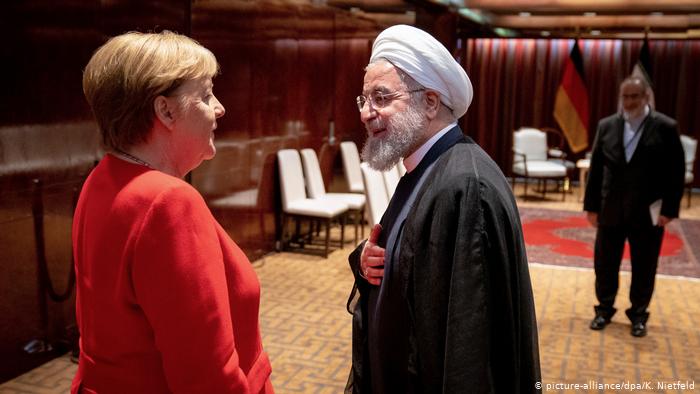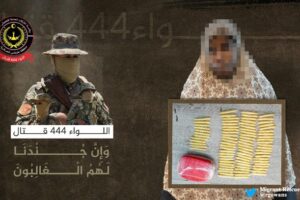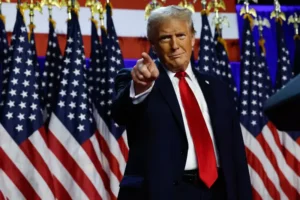The United Nations said Thursday that it had suspended the voting rights of Iran and four smaller countries for delinquent dues. The move provoked a furious reaction from Iran, which called it “astonishingly absurd” and blamed the country’s arrears on U.S. sanctions that had frozen Iranian funds in banks worldwide.
The episode threatened to inject another irritant into the estranged U.S.-Iranian relationship, entangling the United Nations just as diplomats are seeking to advance negotiations aimed at restoring American and Iranian compliance with the 2015 nuclear agreement between Iran and the major powers.
President Trump repudiated that accord three years ago, restoring economic sanctions that the agreement had lifted. Iran responded by re-engaging in uranium enrichment and other actions that had been curtailed under the accord’s provisions. President Biden has said he wants to rejoin the nuclear agreement, but Iran has said the United States must drop its sanctions in verifiable ways before Iran will return to compliance.
Secretary General António Guterres said in a letter to the president of the General Assembly that Iran and four African countries — the Central African Republic, Comoros, Sao Tome and Principe, and Somalia — had all breached the delinquency threshold under Article 19 of the U.N. Charter. The article states that any member owing the previous two years of assessments may not vote in the General Assembly.
Mr. Guterres’s spokesman, Stéphane Dujarric, said such letters are routinely transmitted when any member reaches the two-year threshold. The assessments are calculated under a complex formula based partly on a country’s economic size.
In early 2020, for example, Venezuela, Yemen and Lebanon were among the countries that temporarily lost voting rights.
The General Assembly can make exceptions to the rule, determining that some countries face such extenuating circumstances they cannot pay and should not be penalized.
But that has not happened — at least not yet — in the case of Iran, which owes more than $16.2 million, by far the most of the five delinquent countries identified in Mr. Guterres’s latest letter, dated May 28.
Foreign Minister Mohammad Javad Zarif of Iran, a former U.N. ambassador who knows his way around the organization, expressed outrage in a Twitter posting at the loss of voting rights, and attached a copy of his response to Mr. Guterres.
“This decision is fundamentally flawed, entirely unacceptable and completely unjustified,” Mr. Zarif’s letter stated.
“It is astonishingly absurd that Iranian people, who have been forcibly blocked from transferring their own money and resources to buy food and medicine — let alone pay U.N. contributions arrears — by a permanent member of the United Nations Security Council, are now being punished for not being allowed to pay budget arrears by the secretariat of the same Organization,” it stated.
Mr. Dujarric defended the issuance of the letter, describing it as a “mechanical procedure” dictated by the U.N. charter’s rules.
“We have been in very intense discussions with the Islamic Republic of Iran on finding a way for them to pay their dues,” Mr. Dujarric told reporters at a daily briefing. “It is not from lack of trying from either our side or from their side, but as you know, the country falls under a number of bilateral sanctions, which makes it a bit challenging. So those discussions are continuing in good faith on all sides.”
In Tehran on Thursday, a spokesman for Iran’s Foreign Ministry, Saeed Khatibzadeh, said the Office of Foreign Assets Control, part of the U.S. Treasury Department, had granted a license for Iran to transfer the owed money to the United Nations from a bank in South Korea, one of several around the world where Iranian funds are impounded.
“This payment will be made soon,” Mr. Khatibzadeh said.
The Office of Foreign Assets Control, which manages the sanctions imposed on Iran, did not immediately respond to a request for comment.











1 Comment